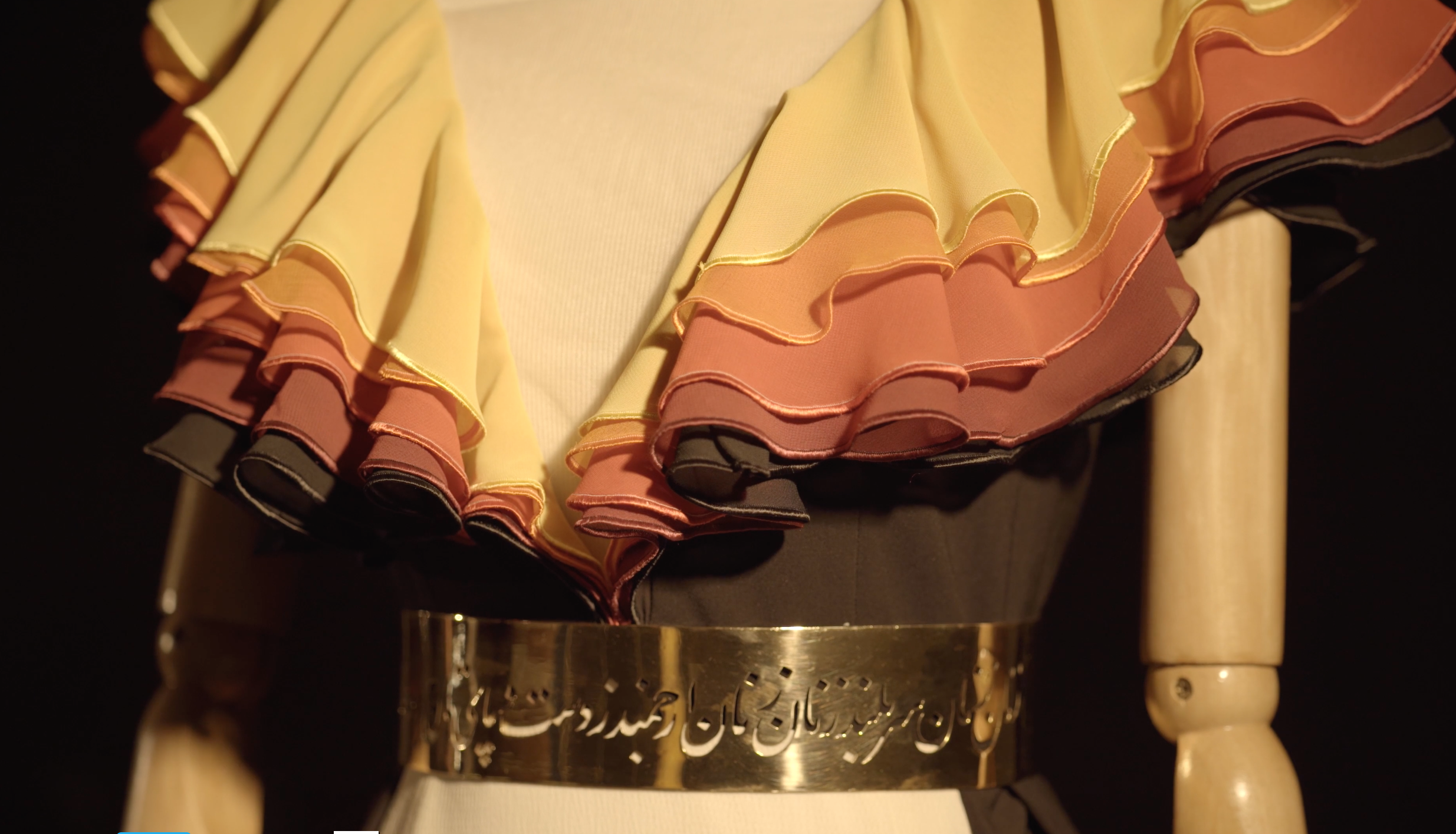
Inside an art exhibition called Abarzanan (Superwomen) stones the size of pomegranates hover above a mannequin wearing a dress fashioned from a white burial shroud.
The display commemorates a young Afghan woman, Rukhshana, 19, who was stoned to death by village men in 2015. She had fled an arranged marriage to a much older man and eloped with a young lover in a Taliban-controlled district in western Afghanistan.
The Superwomen exhibition, created by photographer and artist Rada Akbar, honours eight trailblazing women in Afghanistan and the region – among them an ancient queen and a 10th-century poet – at a fearful time for Afghan women.
After 19 years of halting gains after the collapse of Taliban rule, a February agreement between the United States and insurgents has filled many Afghan women with dread. The agreement does not mention women’s rights but does envision a return of the Taliban to a future Afghan government after US troops withdraw.
That prospect adds urgency to the Superwomen exhibition, which explores the refusal of Afghanistan’s patriarchal society to acknowledge, much less respect, the achievements of courageous women.
“It’s not as if someone gave us the rights we have – we earned them,” says Akbar. “Now we face going backward with the Taliban, the enemies of women, art and culture.”
The exhibition is showing at Chehilsoton Palace in Kabul, the country’s capital. Each of the displays in the Superwomen show tells the story of a pioneer, and each features traditional Afghan artwork by female jewellery makers, embroiderers and calligraphers.
One piece represents Khalida Popal, 32, a soccer player who played the game clandestinely as a girl despite persecution by the Taliban when the group ruled Afghanistan from 1996 to 2001. Popalzai later helped form the Afghan national women’s soccer team and led a movement that exposed sexual abuse and harassment by male officials.

‘People assume women have only existed here for the past 18 years’ (Abarzanan)
Her story is embodied by a woman’s figure dressed in black. Three black-gloved hands clutch at her body.
One hand grasps a breast, one of its fingers shaped like a scorpion. Another hand, shaped like a snake, is wrapped around the figure’s womb. The third hand creeps over her shoulder.
Akbar says the hands represent oppression against Afghan women from three spheres – religion, politics and economics.
We’ve fought hard for everything we’ve accomplished. But people expect us to be satisfied with basic rights, nothing more
The figure’s dress includes a long black train that unfurls across the floor. Visitors have to decide whether to step on the material to reach the next display or to find a way to step over it. The train is smeared with footprints.
“We, Afghan women and our allies, are righteously enraged,” Akbar says at the exhibition’s opening ceremony. “It comes from generations of powerful men telling us to wait.”
‘Open to learning’: at least half the visitors to the exhibition are men (Abarzanan)
Akbar, 32, fled the Taliban government for Pakistan with her family as a child. She returned to Afghanistan in 2002, the year after the US invasion toppled the Taliban.
Because women were essentially invisible under the Taliban, she says, “people assume women have only existed here for the past 18 years. That’s insulting.”
Akbar says Afghan women were expected to be satisfied with their incremental gains in education, the workplace and public life since 2001. But Afghanistan remained a suffocating, patriarchal society for women, especially in rural areas dominated by the Taliban, she says.
“We’re not victims – we’re champions,” she said. “We’ve fought hard for everything we’ve accomplished. But people expect us to be satisfied with basic rights, nothing more.”
Akbar is raising money to establish a permanent museum to recognise achievements by Afghan women. She said she has received approval from the Afghan president, Ashraf Ghani, to open the museum in a refurbished palace in Kabul.
Through the Superwomen exhibition, Akbar sought to honour the contributions made by Afghan women over the centuries, most of them erased in history books written by men. She says she had to dig deeply, for instance, to uncover the stories of an Afghan queen and an empress.
This exhibition is a reminder to all Afghan women what would happen to them if the Taliban come back
One exhibition figure represents Queen Soraya Tarzi, who reigned from 1919 to 1929. She fought for women’s education and opposed polygamy and requiring women to wear hijabs.
Another figure embodies Gawharshad Begum, a powerful 13th-century empress who championed artists and writers, including renowned female poet Mehri Herawi.
At least half of the exhibition’s visitors are men, says Akbar. “Most have been curious and open to listening and learning.”
One visitor, Mohammad Hadi, 25, says that even after more than 18 years of post-Taliban governance, “Afghan women still have so much to deal with.” He says Afghan men should fight alongside women for expanded rights.
Mothers of pearls: works by female jewellery makers are on show (Abarzanan)
“This exhibition is like a lesson for a whole new generation,” he says.
Another visitor, Maryam Atefi, 16, was born after the Taliban government fell but said she had heard and read about their harsh treatment of women.
Read more
“But the Taliban are not even in power, and society is still totally against women,” she says. “This exhibition is a reminder to all Afghan women what would happen to them if the Taliban come back.”
For many female visitors the stories told in the exhibition have only intensified their trepidation over the possible return of the Taliban.
“Every woman in this country is afraid that we could lose everything we’ve been fighting for all these years,” Akbar says. “As this exhibition shows, we deserve so much more.”
independent.co.uk


No comments:
Post a Comment